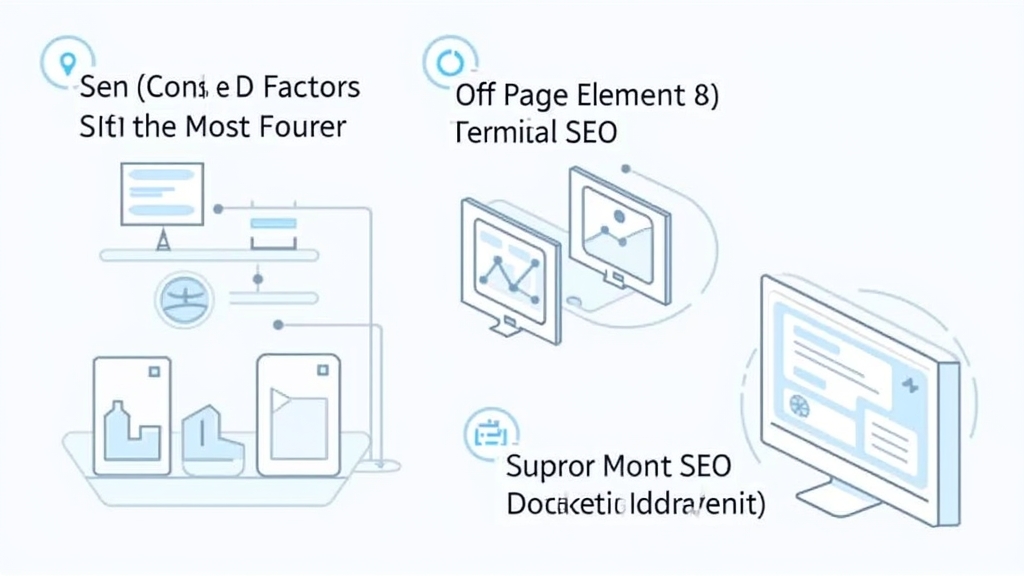Marketing: The Essential Guide to Website SEO Audits
Introduction to Website SEO Audits
In the digital world, having a website is just the beginning. To truly succeed online, you need to ensure your site is optimized for search engines. This is where an SEO audit comes in. An SEO audit evaluates your website’s performance and identifies areas for improvement. Regular audits are crucial because they help you stay ahead of competitors and adapt to changing algorithms. By understanding what an SEO audit entails and its importance, you can enhance your site’s visibility and attract more visitors.
Key Components of an SEO Audit
On-Page SEO Factors
On-page SEO factors focus on elements within your website that affect its ranking in search results. These include title tags, meta descriptions, header tags, and keyword usage throughout your content. Ensuring these elements are optimized helps search engines understand what your pages are about. Additionally, user experience plays a significant role; this includes page load speed and mobile-friendliness.
Off-Page SEO Factors
Off-page SEO refers to actions taken outside of your own website that impact its trustworthiness and authority. This includes backlinks from other sites pointing to yours, social media engagement, and brand mentions across the web. A strong off-page presence signals to search engines that your site is credible and relevant.
Technical SEO Elements
Technical SEO involves optimizing the backend structure of your website so that it meets technical requirements set by search engines. This includes ensuring proper indexing, creating XML sitemaps, using HTTPS for security, and improving site speed. Addressing technical issues can significantly enhance how well search engines crawl and index your site.
Tools and Software for Conducting an SEO Audit
Popular SEO Audit Tools Overview
There are several tools available that can help you conduct a thorough SEO audit of your website. Some popular options include Google Search Console, SEMrush, Ahrefs, Moz Pro, and Screaming Frog. Each tool offers unique features such as keyword tracking, backlink analysis, or site crawling capabilities.
How to Choose the Right Tool for Your Needs
When selecting an auditing tool for your needs, consider factors like ease of use, specific features required (e.g., keyword research or competitor analysis), budget constraints, and customer support availability. It’s essential to choose a tool that aligns with both your current skill level and future growth goals.
Step-by-Step Process for Performing an SEO Audit
Initial Assessment and Data Collection
Start by gathering data on how well your website currently performs in terms of traffic sources, bounce rates, conversion rates, etc. Use tools like Google Analytics alongside other auditing software to collect this information effectively.
Analyzing Site Structure and Navigation
Next up is examining how users navigate through your site. A clear structure helps visitors find what they need quickly while also aiding search engine crawlers in indexing pages efficiently. Check if URLs are cleanly structured without unnecessary parameters or complexities.
Reviewing Content Quality and Relevance
Content quality matters greatly in any successful audit process! Review existing content for relevance—does it meet user intent? Are keywords naturally integrated? Also assess whether content is updated regularly since fresh information tends to rank better on SERPs (Search Engine Results Pages).
Common Issues Identified in Website SEO Audits
Duplicate Content Problems
One common issue found during audits is duplicate content—when similar or identical content appears on multiple pages either within one domain or across different domains—which confuses search engines about which version should rank higher.
Broken Links and Redirects
Broken links lead users nowhere fast! They create frustrating experiences while also negatively impacting rankings due to poor user experience metrics recorded by analytics tools over time; thus identifying them during audits becomes crucial!
Performance Issues Affecting User Experience
Slow loading times can deter potential customers from staying on-site long enough even if they initially had interest! Performance issues often stem from unoptimized images or excessive scripts running behind-the-scenes causing delays when rendering webpages properly.
Implementing Changes Based on Your Audit Findings
Prioritizing Actionable Insights
Once you’ve identified issues through the audit process prioritize actionable insights based upon their potential impact versus effort needed—this ensures efficient use of resources moving forward!
Creating a Strategic Plan for Improvements
Develop a strategic plan outlining steps necessary towards implementing changes discovered during audits; consider timelines along with responsibilities assigned among team members involved throughout execution phases!
Measuring the Success of Your SEO Audit Efforts
Key Performance Indicators (KPIs) to Monitor
After implementing changes it’s vital monitor KPIs such as organic traffic growth rate improvements alongside conversion rates reflecting overall success achieved post-audit efforts undertaken previously!
Adjusting Strategies Based on Results
Regularly review performance data collected after making adjustments; be prepared pivot strategies accordingly if certain initiatives aren’t yielding expected outcomes ensuring continuous optimization remains at forefront operations ongoingly!
Conclusion: Maximizing Your Marketing Impact Through Effective Website SEO Audits
Conducting regular website audits allows businesses maximize their marketing impact effectively! By focusing attention towards key components including both technical aspects along with content relevancy organizations position themselves favorably against competition ultimately driving increased traffic conversions over time leading sustained growth success overall!
📢 Explore More: Continue Your Journey!
If this article helped you understand the basics of conducting effective website audits check out The Ultimate Guide to Keyword Research! It covers essential techniques helping you discover valuable keywords tailored specifically toward enhancing visibility online.














![NEEWER 55W 18"/45cm Ring Light Kit [New Version], 5600K Dimmable ...](https://m.media-amazon.com/images/I/414QLqvZWLL._AC_.jpg)








